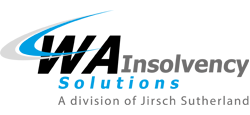One of the most stressful times for businesses is when their quarterly BAS falls due. Preparing, lodging and paying activity statements can lead to some short-term financial issues if underprepared.
Accountants are likely to have a number of small-business clients that are feeling the pain financially. The ATO’s latest annual report showed that a staggering $13 billion in overdue tax is owed by SMEs. It also highlighted that in the 2015-16 year, some 28% of small business tax liabilities were paid late.
 Jirsch Sutherland Partner Andrew Spring says he notices more queries from clients around BAS time. “Acknowledging that your business is experiencing an element of financial distress is a difficult admission,” he says. “Most business people are reluctant to speak with an insolvency practitioner unless there is a catalyst for that discussion. When a business is struggling with juggling its cash-flow requirements, the BAS lodgment cycle can be the tipping point to seeking help.”
Jirsch Sutherland Partner Andrew Spring says he notices more queries from clients around BAS time. “Acknowledging that your business is experiencing an element of financial distress is a difficult admission,” he says. “Most business people are reluctant to speak with an insolvency practitioner unless there is a catalyst for that discussion. When a business is struggling with juggling its cash-flow requirements, the BAS lodgment cycle can be the tipping point to seeking help.”
A company’s cash flow is the life blood of its business, Andrew says. As such, all businesses that require the assistance of an insolvency practitioner have experienced cash-flow stress. “A simple test of cash-flow stress is to review the ATO running balance account and see if the BAS’s have been lodged and paid on time,” Andrew says.
He adds Jirsch Sutherland encourages SME business owners and their advisers to remain aware of cash flow and its unique ability to cut to the core of business performance. “If the business is showing signs of cash-flow stress, then early conversations with a specialist adviser can uncover options and subsequently solutions that address any cash-flow concerns,” he says.
While tax payments can create a cash-flow issue, there are actions that can be taken. Below are some potential solutions and tips that accountants can either use or pass onto clients that may alleviate any cash-flow stress:
- If things are really bad, the Australian Tax Office may be able to offer a flexible payment arrangement until a small business gets back on track. Although they will need to prepared to provide a valid reason for why they’re unable to pay the full amount.
- Make sure your client isn’t ignoring their BAS. Non-payment will attract a late lodgement penalty and they’ll receive a bad lodgement record. Being proactive by approaching the ATO before a debt becomes outstanding will work in their favour.
- Putting aside money to pay the GST and tax is always a good idea. It’s too easy to spend the GST collected from sales so one option is to open a separate bank account – preferably one paying a high amount of interest – and transfer one-eleventh of total sales received into it. At the same time set aside around 30 per cent of income received into the same account. When it’s time to do the BAS the money for the GST and tax will be available.











